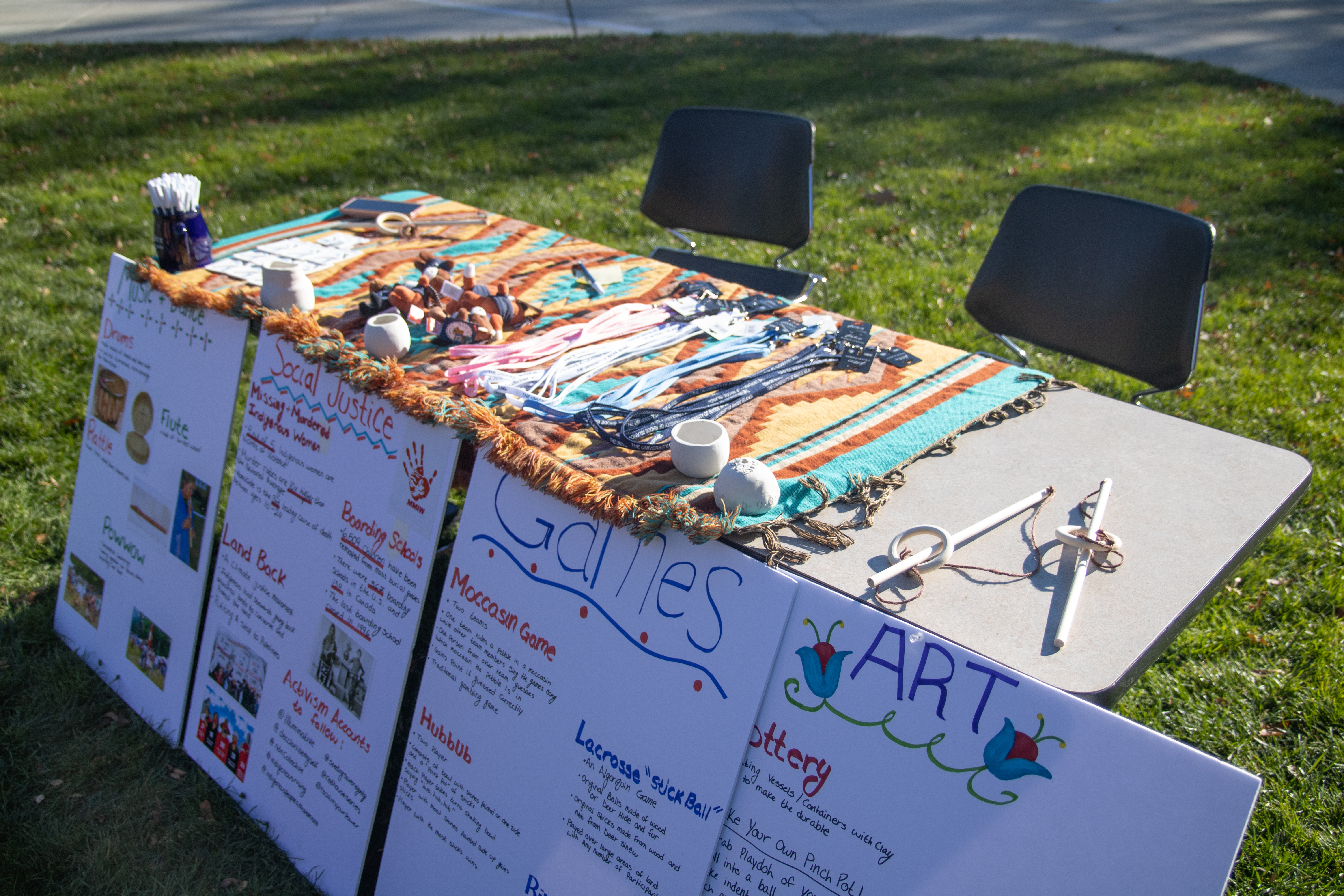To celebrate Native American Heritage Month, URI held an event on the Quad with games, art and music. PHOTO CREDIT: Nick Pierson
Remembering the past and teaching the future were important themes as the University of Rhode Island celebrated Native American Heritage Month throughout November.
To commemorate the historical month, URI held an event on the Quad on Tuesday, Nov. 23. The event featured activities to teach people about Native American culture, from games and art to music.
The games included ring-and-pin and lacrosse, which has its roots in the Algonquian tribes. It also included lesser-known games like hub hub, described by Malinda Fry, an Indigenous student, as a gambling game where two teams hit a bowl filled with beans to get marks.
In addition, they had Play-Doh to make traditional pinch pots.
“We are giving out Play-Doh to teach people how to make traditional pinch pots since we were not allowed to use real clay,” Fry said. “Traditional pinch pots like these were used often to go around and collect seeds.”
The event also featured traditional Native American instruments, such as rattles and drums. The drums ranged from pow-wow drums, which are big and round, to handheld drums that are used for social dances. Many of them were made from wood and other natural materials and were made to represent the sounds of nature, according to Fry.
Given that the University is on Narragansett land, Fry said it is important to teach students about the culture of the tribes that have lived in the area.
“Since we are on Narragansett land, I think it is very important for people to understand the traditions of people from this area, because they learn a lot about Plains native people, rather than eastern woodland,” she said.
She also mentioned that she, along with some other students of Native American heritage, are trying to organize the Native American Student Organization but have not yet since the number of Native American students is very low on campus.
“Our first big goal is to get that established so there is always a safe space for Indigenous people,” she said
Fry said that URI also must work on curriculum on campus, as many courses that focus on Native American Heritage are taught by people who are not of Native American descent, and use old textbooks that are out of date when it comes to their research.
Vendors also attended to sell Native-related goods. Lorén Spears, the executive director of the Tomaquag Museum which is set to be relocated to URI in 2023 and currently has an exhibit at URI, was there as a vendor on behalf of the museum.
“We have a collaborative gift shop which is part of our Indigenous Empowerment Program, so we have 35 local Indigenous artists represented,” Spears said.
The goods included the pieces by the artists, many of them being handmade jewelry, and books written by or assisted by the museum and Spears.
Amelia Moore, an associate professor of marine affairs and a faculty advisor to Fry, also agreed that there was much work to do when it came to teaching about Native American culture and history on campus.
“We don’t have a Native American or Indigenous Studies program,” she said.
Moore said that there are a small number of courses offered about Indigenous history though. She also said that there have been improvements, such as the Narragansett Scholarship, which is a scholarship for people federally identified as members of the Narragansett Tribe, but there is still a lot more to do when it comes to educating people about the true history of the Indigenous people and their land.





